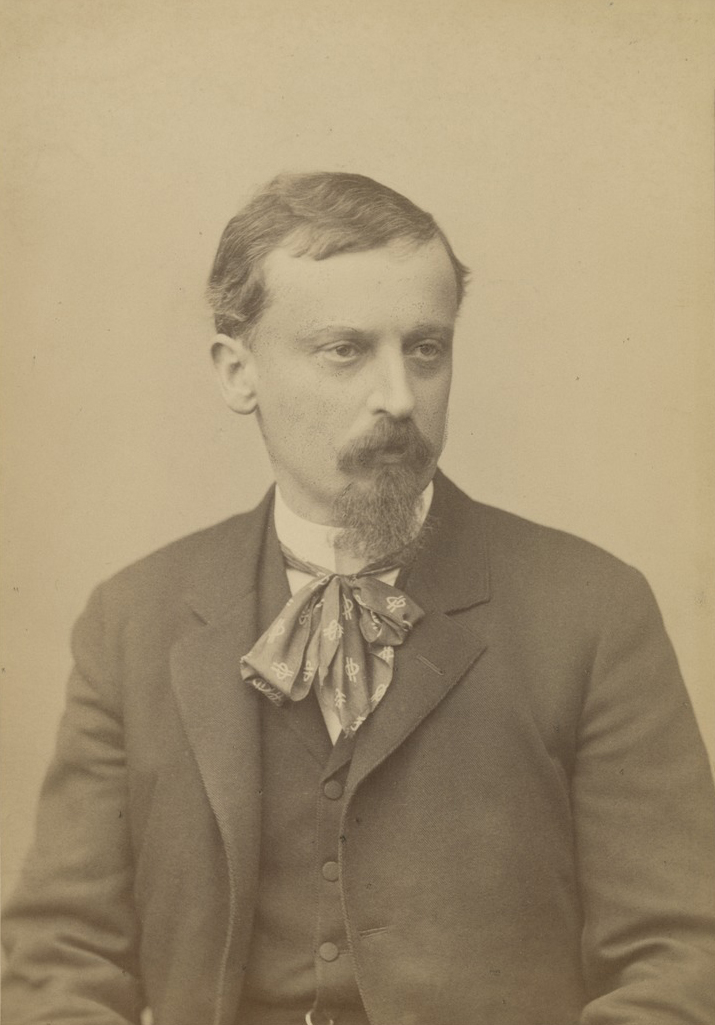|
Krzyżacy
''The Knights of the Cross'' or ''The Teutonic Knights'' ( pl, Krzyżacy) is a 1900 historical novel written by the Polish Positivist writer and the 1905 Nobel laureate, Henryk Sienkiewicz. Its first English translation was published in the same year as the original. The book was serialized by the magazine ''Tygodnik Illustrowany'' between 1897–1899 before its first complete printed edition appeared in 1900. The book was first translated into English by Jeremiah Curtin, a contemporary of Henryk Sienkiewicz.Polish official site about translators of H. Sienkiewicz novels and short stories. ''Poland.gov.pl.'' Retrieved October 8, 2011. ''The Teutonic Knights'' had since been translated into 25 languages. It was the first book to be printed in Poland at the end ... [...More Info...] [...Related Items...] OR: [Wikipedia] [Google] [Baidu] |
Emil Karewicz
Emil Karewicz (13 March 1923 – 18 March 2020) was a Polish actor. Early life His acting career began in Wilno, at the local theatre, where he played the role of a monkey in the "Quartet" by Ivan Krylov. During World War II he served in the Polish Army. He fought in the Battle of Berlin in 1945. Career After the war, he graduated from Iwo Gall Theatrical Studio (along with Ryszard Barycz, Bronisław Pawlik and Barbara Krafftówna). He played on stages in Łódź, mostly in the Jaracz Theatre and the New Theatre. Since 1962 he performed in Warsaw, in the Ateneum Theatre (''Teatr Ateneum im. Stefana Jaracza w Warszawie''), the Dramatic Theatre (''Teatr Dramatyczny w Warszawie''), and the New Theatre (''Teatr Nowy w Warszawie 1947-2005''). He retired in 1983. He died on 18 March 2020, five days after turning 97. Fame He earned popularity while performing roles of SS-Sturmbannführer Hermann Brunner in TV Series '' Stawka większa niż życie'' and SS-Obersturmführer in ... [...More Info...] [...Related Items...] OR: [Wikipedia] [Google] [Baidu] |
Henryk Sienkiewicz
Henryk Adam Aleksander Pius Sienkiewicz ( , ; 5 May 1846 – 15 November 1916), also known by the pseudonym Litwos (), was a Polish writer, novelist, journalist and Nobel Prize laureate. He is best remembered for his historical novels, especially for his internationally known best-seller ''Quo Vadis'' (1896). Born into an impoverished Polish noble family in Russian-ruled Congress Poland, in the late 1860s he began publishing journalistic and literary pieces. In the late 1870s he traveled to the United States, sending back travel essays that won him popularity with Polish readers. In the 1880s he began serializing novels that further increased his popularity. He soon became one of the most popular Polish writers of the turn of the 19th and 20th centuries, and numerous translations gained him international renown, culminating in his receipt of the 1905 Nobel Prize in Literature for his "outstanding merits as an epic writer." Many of his novels remain in print. In Poland he ... [...More Info...] [...Related Items...] OR: [Wikipedia] [Google] [Baidu] |
Knights Of The Teutonic Order (film)
''Knights of the Teutonic Order'' (Polish: ''Krzyżacy'') is a 1960 Polish film directed by Aleksander Ford based on the novel of the same name by Henryk Sienkiewicz. The plot is situated in the late-14th century and early-15th century Poland and centers on the Polish–Lithuanian–Teutonic War (1409-1411) and the final Battle of Grunwald (1410). 15,000 extras were employed to create the battle scenes. The film attracted to cinema masses of viewers and remains one of the most attended films in Polish history: it sold 2 million tickets within several months, 14 million after four years and as of 1987, it had some 32,315,695 admissions. It was also exported to forty-six foreign countries, and sold 29.6 million tickets in the Soviet Union and 2,650,700 in the Czechoslovak Socialist Republic, and was the most successful Polish film internationally. It was a Polish submission to the 33rd Academy Awards. It was released on 15 July 1960, the 550th anniversary of the battle of Grunw ... [...More Info...] [...Related Items...] OR: [Wikipedia] [Google] [Baidu] |
Battle Of Grunwald
The Battle of Grunwald, Battle of Žalgiris or First Battle of Tannenberg was fought on 15 July 1410 during the Polish–Lithuanian–Teutonic War. The alliance of the Crown of the Kingdom of Poland and the Grand Duchy of Lithuania, led respectively by King Władysław II Jagiełło (Jogaila), who did not participate in the battle himself, and Grand Duke Vytautas, decisively defeated the German Teutonic Order, led by Grand Master Ulrich von Jungingen. Most of the Teutonic Order's leadership were killed or taken prisoner. Although defeated, the Teutonic Order withstood the subsequent siege of the Malbork Castle and suffered minimal territorial losses at the Peace of Thorn (1411), with other territorial disputes continuing until the Treaty of Melno in 1422. The order, however, never recovered their former power, and the financial burden of war reparations caused internal conflicts and an economic downturn in the lands controlled by them. The battle shifted the balance o ... [...More Info...] [...Related Items...] OR: [Wikipedia] [Google] [Baidu] |
Aleksander Ford
Aleksander Ford (born Mosze Lifszyc; 24 November 1908 in Kiev, Russian Empire – 4 April 1980 in Naples, Florida, U.S.) was a Polish film director; and head of the Polish People's Army Film Crew in the Soviet Union during World War II. Following the war, he was appointed director of the Film Polski company. In 1948 he was appointed as a professor of the National Film School in Łódź (Państwowa Wyższa Szkoła Filmowa). Roman Polanski was among his students. Another of Ford's protégés was the Polish film director Andrzej Wajda. Following the anti-Semitic purge in the communist party in Poland, in 1968 Ford emigrated to Israel and from there through Germany and Denmark, to the United States. He committed suicide in 1980 in Naples, Florida.Dr. Edyta Gawron, Department of Jewish Studies, Jagiellonian University, Kraków "Contemporary history of Jews in Poland (1945-2005) – as Depicted in the Film."PDF file (direct download): 194.7 KB. Retrieved June 24, 2012. Professional ... [...More Info...] [...Related Items...] OR: [Wikipedia] [Google] [Baidu] |
1900 In Literature
This article contains information about the literary events and publications of 1900. Events *March 5 – New York performances of the play '' Sapho'' curbed for immorality. *March 15 – Sarah Bernhardt stars in premiere of Edmond Rostand's ''l'Aiglon''. *May **Rainer Maria Rilke makes his second visit to Russia with Lou Andreas-Salomé and her husband. **The first film to feature the detective character Sherlock Holmes, ''Sherlock Holmes Baffled'', is released by the American Mutoscope and Biograph Company. *May 17 – L. Frank Baum's ''The Wonderful Wizard of Oz'' is published in Chicago, the first of Baum's books chronicling the fictional Land of Oz for children. *June 24 – The Hanlin Academy in Peking, housing "the oldest and richest library in the world", catches fire and is destroyed during the Boxer Rebellion. *June 25 – The Taoist monk Wang Yuanlu discovers the Dunhuang manuscripts in the Library Cave or Cave for Preserving Scriptures, No. 17 of the Mogao Caves in ... [...More Info...] [...Related Items...] OR: [Wikipedia] [Google] [Baidu] |
Prussia (region)
Prussia ( Old Prussian: ''Prūsa''; german: Preußen; lt, Prūsija; pl, Prusy; russian: Пруссия, tr=Prussiya, ''/Prussia/Borussia'') is a historical region in Europe on the south-eastern coast of the Baltic Sea, that ranges from the Vistula delta in the west to the end of the Curonian Spit in the east and extends inland as far as Masuria. Tacitus's ''Germania'' (98 AD) is the oldest known record of an eyewitness account on the territory and its inhabitants. Pliny the Elder had already confirmed that the Romans had navigated into the waters beyond the ''Cimbric peninsula'' (Jutland). Suiones, Sitones, Goths and other Germanic people had temporarily settled to the east and west of the Vistula River during the Migration Period, adjacent to the Aesti, who lived further to the east. Overview The region's inhabitants of the Middle Ages have first been called ''Bruzi'' in the brief text of the Bavarian Geographer and since been referred to as Old Prussians, who, beg ... [...More Info...] [...Related Items...] OR: [Wikipedia] [Google] [Baidu] |
State Of The Teutonic Order
The State of the Teutonic Order (german: Staat des Deutschen Ordens, ; la, Civitas Ordinis Theutonici; lt, Vokiečių ordino valstybė; pl, Państwo zakonu krzyżackiego), also called () or (), was a medieval Crusader state, located in Central Europe along the southeastern shore of the Baltic Sea. It was formed by the knights of the Teutonic Order during the 13th century Northern Crusades in the region of Prussia. The Livonian Brothers of the Sword merged in 1237 with the Teutonic Order of Prussia and became known as its branch, the Livonian Order, while their state ('' Terra Mariana'') became a part of the Teutonic Order State. At its greatest territorial extent, in the early 15th century, it encompassed Chełmno Land, Courland, Gotland, Livonia, Neumark, Pomerelia (Gdańsk Pomerania), Prussia and Samogitia, i.e. territories nowadays located in Estonia, Latvia, Lithuania, Germany, Poland, Russia, and Sweden. Following the battles of Battle of Grunwald, Grunwald in 1410 ... [...More Info...] [...Related Items...] OR: [Wikipedia] [Google] [Baidu] |
Teutonic Knights
The Order of Brothers of the German House of Saint Mary in Jerusalem, commonly known as the Teutonic Order, is a Catholic religious institution founded as a military society in Acre, Kingdom of Jerusalem. It was formed to aid Christians on their pilgrimages to the Holy Land and to establish hospitals. Its members have commonly been known as the Teutonic Knights, having a small voluntary and mercenary military membership, serving as a crusading military order for the protection of Christians in the Holy Land and the Baltics during the Middle Ages. Purely religious since 1810, the Teutonic Order still confers limited honorary knighthoods. The Bailiwick of Utrecht of the Teutonic Order, a Protestant chivalric order, is descended from the same medieval military order and also continues to award knighthoods and perform charitable work. Name The name of the Order of Brothers of the German House of Saint Mary in Jerusalem is in german: Orden der Brüder vom Deutschen Haus der ... [...More Info...] [...Related Items...] OR: [Wikipedia] [Google] [Baidu] |
Baltic Sea
The Baltic Sea is an arm of the Atlantic Ocean that is enclosed by Denmark, Estonia, Finland, Germany, Latvia, Lithuania, Poland, Russia, Sweden and the North and Central European Plain. The sea stretches from 53°N to 66°N latitude and from 10°E to 30°E longitude. A marginal sea of the Atlantic, with limited water exchange between the two water bodies, the Baltic Sea drains through the Danish Straits into the Kattegat by way of the Øresund, Great Belt and Little Belt. It includes the Gulf of Bothnia, the Bay of Bothnia, the Gulf of Finland, the Gulf of Riga and the Bay of Gdańsk. The "Baltic Proper" is bordered on its northern edge, at latitude 60°N, by Åland and the Gulf of Bothnia, on its northeastern edge by the Gulf of Finland, on its eastern edge by the Gulf of Riga, and in the west by the Swedish part of the southern Scandinavian Peninsula. The Baltic Sea is connected by artificial waterways to the White Sea via the White Sea–Baltic Canal and to ... [...More Info...] [...Related Items...] OR: [Wikipedia] [Google] [Baidu] |
Congress Poland
Congress Poland, Congress Kingdom of Poland, or Russian Poland, formally known as the Kingdom of Poland, was a polity created in 1815 by the Congress of Vienna as a semi-autonomous Polish state, a successor to Napoleon's Duchy of Warsaw. It was established when the French ceded a part of Polish territory to the Russian Empire following France's defeat in the Napoleonic Wars. In 1915, during World War I, it was replaced by the German-controlled nominal Regency Kingdom until Poland regained independence in 1918. Following the partitions of Poland at the end of the 18th century, Poland ceased to exist as an independent nation for 123 years. The territory, with its native population, was split between the Habsburg monarchy, the Kingdom of Prussia, and the Russian Empire. After 1804, an equivalent to Congress Poland within the Austrian Empire was the Kingdom of Galicia and Lodomeria, also commonly referred to as " Austrian Poland". The area incorporated into Prussia and sub ... [...More Info...] [...Related Items...] OR: [Wikipedia] [Google] [Baidu] |






